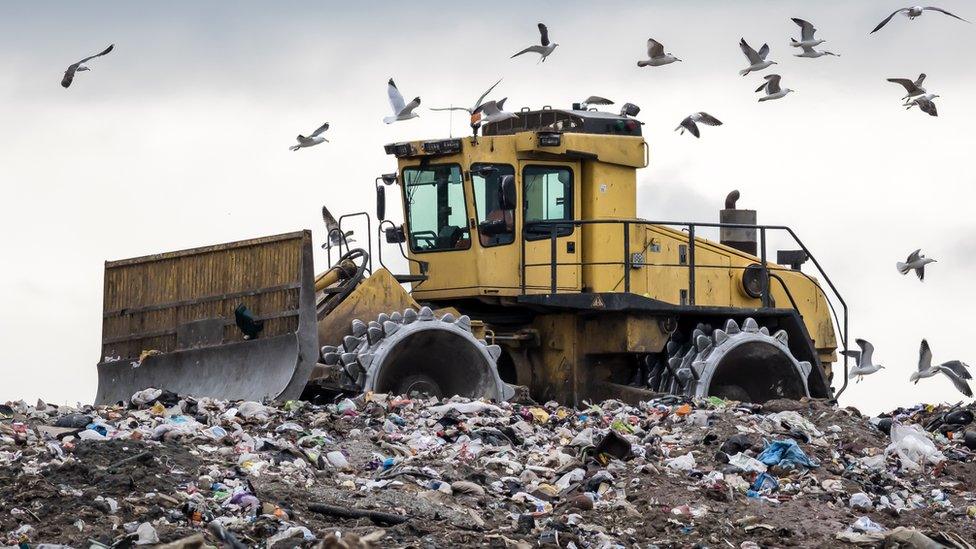Recycling Wales' dirty baby nappies in Ammanford
- Published
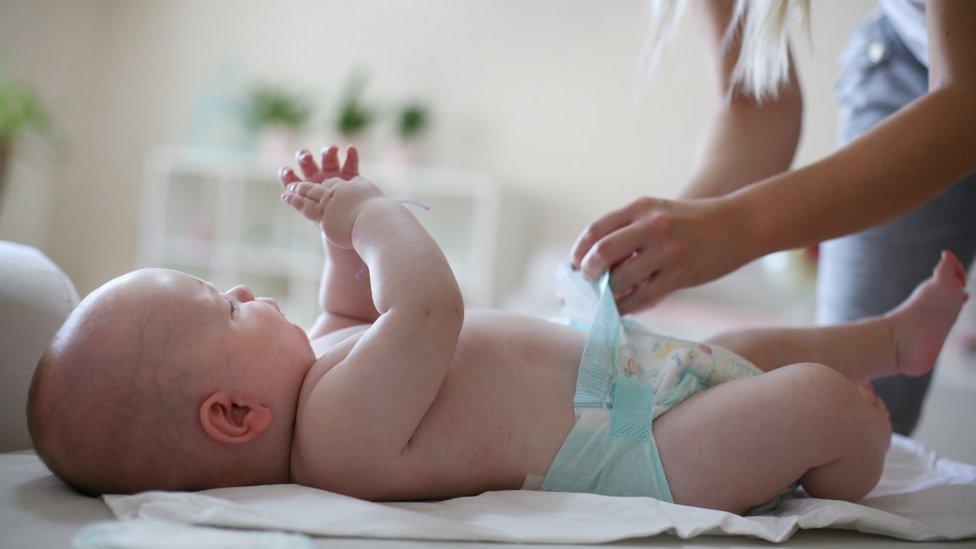
Babies may be cute, but they create a lot of waste
The stink from 200 million soiled nappies in Wales each year has proved too much for most recyclers - but one is giving them a new lease of life.
They make up 10% of black bag waste and have presented headaches for councils trying to cut what is sent to landfill.
But an innovator, who likened himself to Caractacus Pott from Chitty Chitty Bang Bang, is turning them into pin boards and insulation.
About 850,000 a week from seven councils are now being processed.
What is binned in Wales became a far more pressing concern than any other part of the UK when Welsh councils were told they must recycle 60% of waste by 2019-20 or face large fines.
The Welsh Government's drive to achieve zero waste to landfill by 2050 means the country now recycles 63% of its rubbish compared with England's 45%.
"Cutting things such as tin cans and food (from black bins) is relatively easy," said Rob Poyer of Ammanford-based NappiCycle.
"But some councils have gone to three-weekly, four-weekly black bin collections.
"If you're going to do that, you need to take out the more arduous wastes."
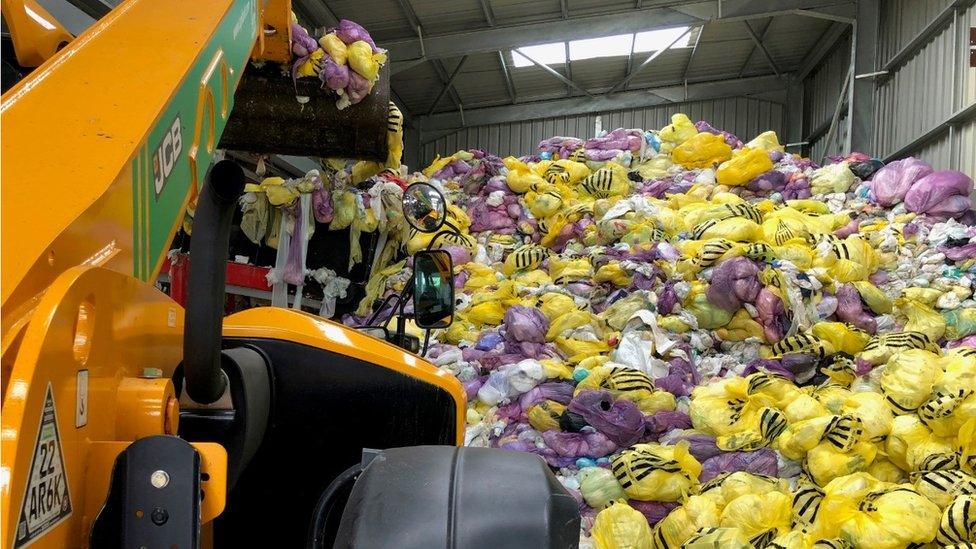
Mr Poyer - who has a background dealing with landfill and clinical waste - has found a solution for dealing with nappy waste
He identified nappies and incontinence pads, as well as tablet packets and old CDs, as posing the greatest problems.
Recycling nappies was not only expensive but also unattractive, because once moisture and solids were taken out, processors were left with just 25% of what they collected.
Ten years ago, Mr Poyer set about finding a solution.
Trying "many crazy systems", he developed a process to shred the nappies through friction washing, with all the waste taken out.
This foul liquid was captured and used as a catalyst for turning the nappy into a fibre.
Do you know what's inside a newborn's disposable nappy?
"This is put through a mill and made into pellets," he added.
"We are co-developing a use in cement, but it can be used in packaging, pin boards and notice boards.
"Also, wall panelling, acoustic material, insulation, under laminate flooring. There's a phenomenal amount of possibilities."
He is working with universities to find more uses, but because few people have successfully recycled nappies before, limited markets exist.
This means 50% of what he processes is used as fuel.
Nappicycle currently works with seven councils - Rhondda Cynon Taf, Swansea, Bridgend, Blaenau Gwent, Conwy, Gwynedd and Carmarthenshire.
The difficulty was illustrated after Cardiff and Monmouthshire became the first Welsh councils to sign up to a nappy recycling scheme in September 2011.
But after the company stopped operating, both are now sending them to an incinerator.
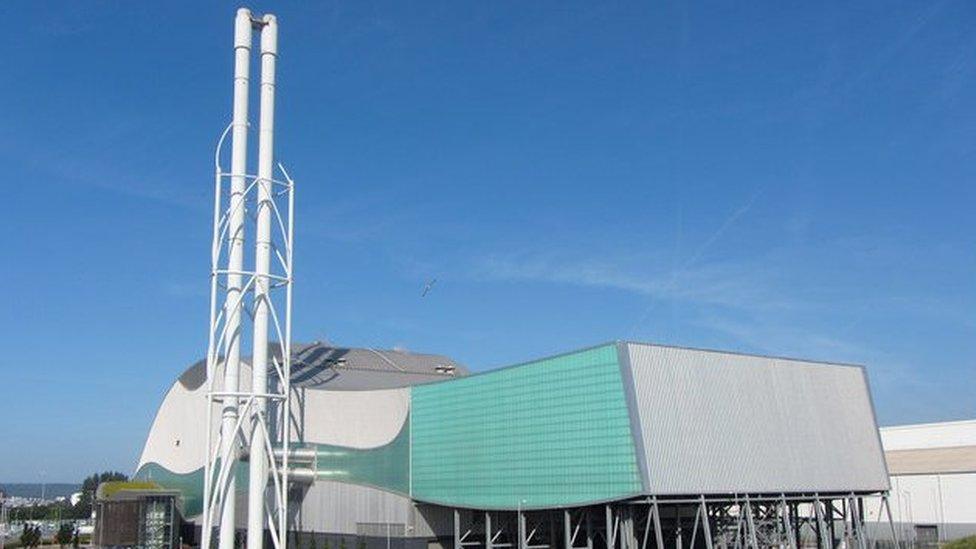
Some councils send nappies to efw facilities with unrecyclable rubbish
Of the 19 Welsh authorities that replied to a request for information about their nappy policy, seven said they offer extra capacity in black bins for those with children.
But nappies are then sent with other rubbish to be processed and create energy from waste.
Four said they do not offer nappy collection provisions, some citing the cost, while six said they used My Poyer's scheme.
The other two - Pembrokeshire and Ceredigion - are set to trial nappy recycling schemes.
Meanwhile, Procter & Gamble, the world's largest nappy maker, has opened a pilot plant in Italy, where it is recovering plastic from them.
- Published21 March 2012
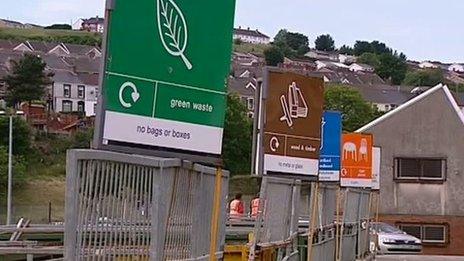
- Published26 February 2019
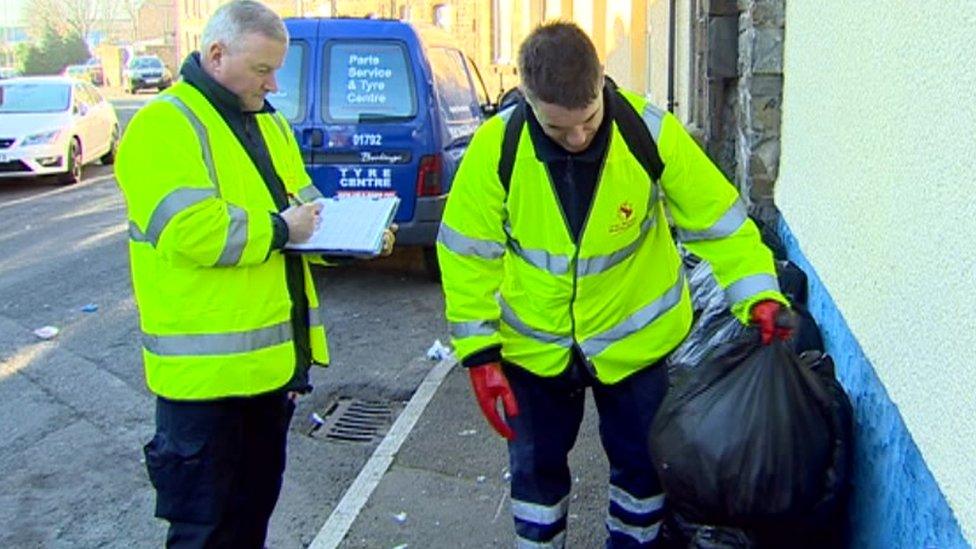
- Published16 February 2019
